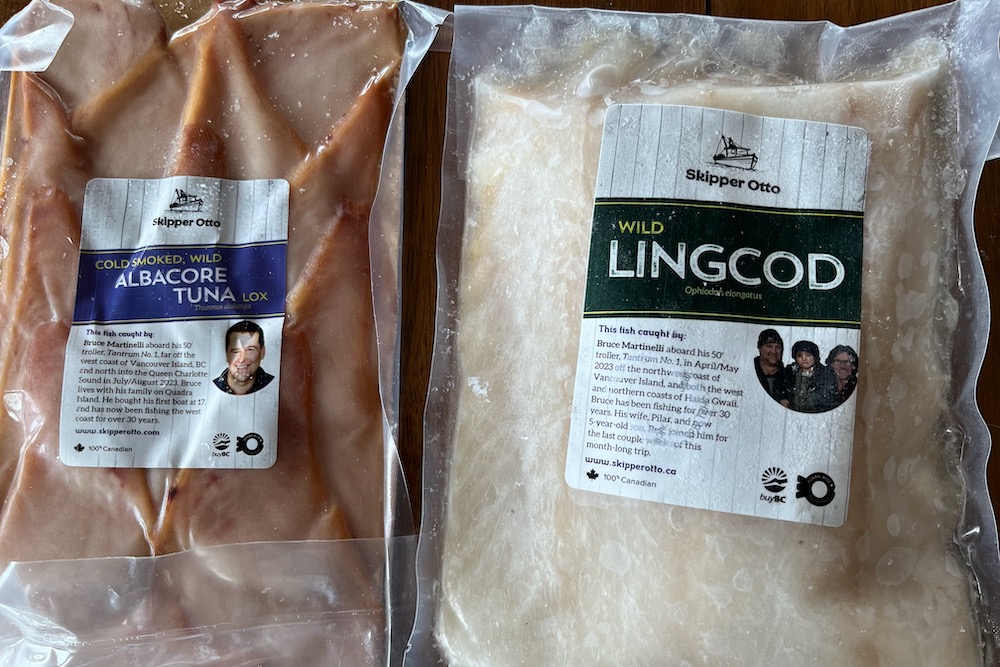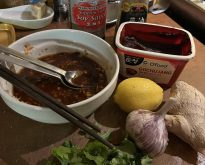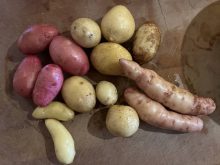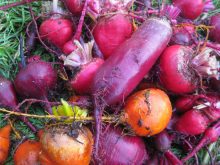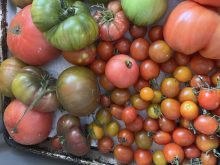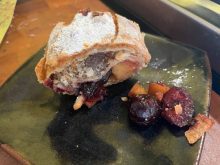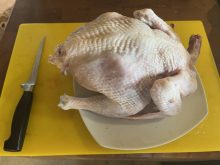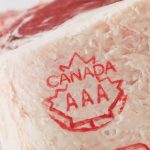Wild fish was part of my childhood on Vancouver Island. We picked oysters and mussels, dug clams, scooped up spawning grunions, and cast hooks for salmon. But these days, as fish prices skyrocket and issues over whether to eat farmed or wild fish become ever more complex, my consumption of fish has plummeted, relying on Lake Diefenbaker steelhead, northern pike or pickerel. I gave up eating salmon years ago, unwilling to contribute to declining ocean stocks or to supporting fish being farmed in non-ecological ways. That’s a big kettle for another day. Today, let’s talk about an alternative: Skipper Otto, which may be the country’s first community supported fishery (CSF).
A CSF operates on the same principles as community supported agriculture (CSA). Clients of a CSF purchase shares in the year’s catch, just as CSA clients pre-purchase a share of the season’s harvest of meats, fruits, grains and vegetables, made available via regular pickups or deliveries. This puts money directly into the hands of the farmers or fishers to get through the off-season, to buy seeds, equipment, and infrastructure needs like greenhouses or wind tunnels, nets, et cetera.
I spoke recently with Sonia Strobel, who married into a B.C. fishing family. By the time Sonia’s first child was born, her father-in-law Otto was considering selling the boat and retiring as the fishery declined. Sonia realized if she wanted her children to be fishers too, something had to change. Then literature and life collided: Sonia had been involved with a CSA when she lived and taught in inner-city Brooklyn, N.Y.; after reading Barbara Kingsolver’s book Animal Vegetable Miracle, Sonia was “starstruck with the idea of local food systems. But how to connect fishing families with home cooks through a CSA for fishers?”
Read Also

Is the technology in our vehicles a help or a hindrance?
Not only does new tech allow people to operate vehicles and farm machinery with fewer skills, it also creates more problems for vehicle users when those systems fail, Scott Garvey writes.
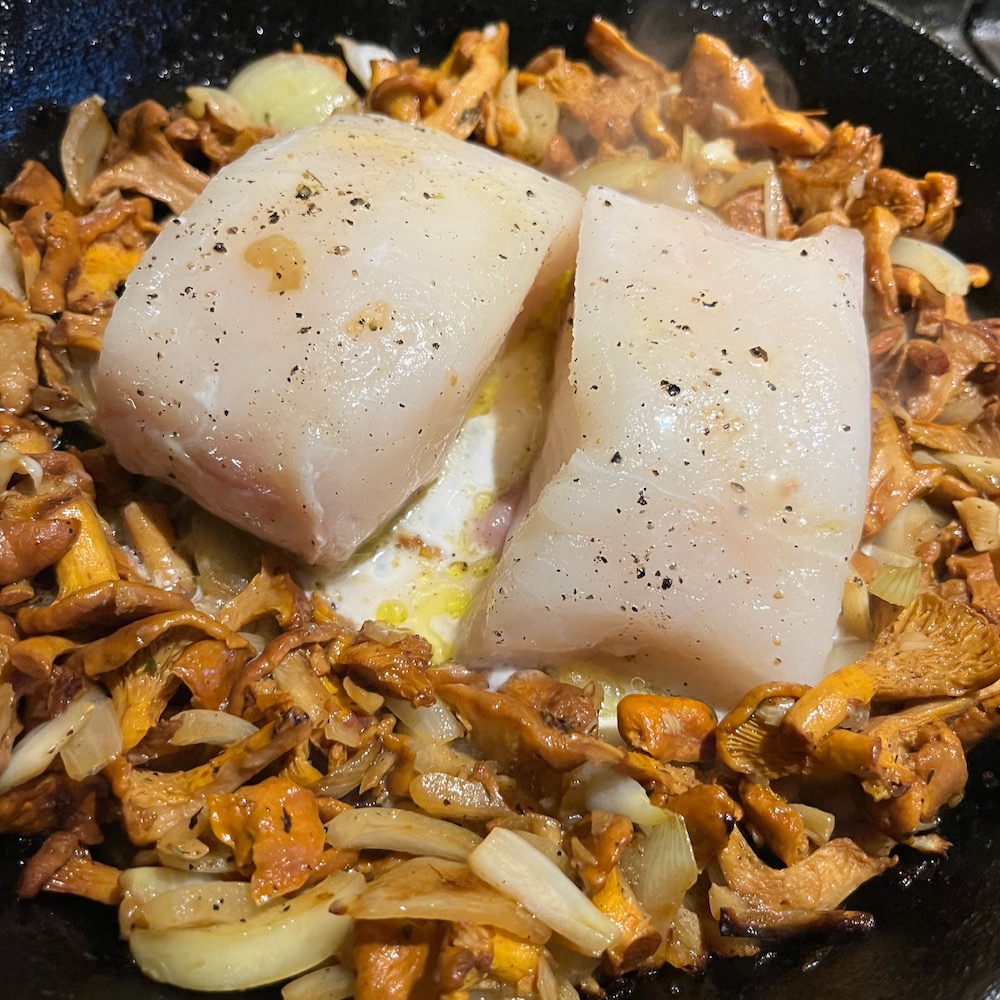
Sonia and her husband Shaun adopted a Field of Dreams mentality: they built a website and founded Skipper Otto. Forty local families came to the table, collecting their share of the catch at the wharf, then at farmers’ market stalls. Then, Prairie friends started asking if they too could buy shares. When 20 Prairie residents joined, the team loaded a freezer and hit the highway, with clients picking up directly from the truck en route.
The co-operative grew cautiously, inviting fishing families they knew personally: fishers focussed on conservation, a love of the sea, a deep respect for the ecosystem, and using small-scale, low-impact harvesting methods. Eventually they found a community-minded organic store in the Prairies with spare freezer space, perfect as a common pickup spot for frozen fish. Sixteen years later, the co-operative lists pickup spots across Western Canada, and has 45 fishing families providing seafood for 8,000 member families.
What can we do as consumers to not be part of the problem? How to be a better solution? What does a robust, just, equitable fishery system look like?
Fishery reform requires an act of social change, a political act, Sonia says. The world she wants to see is what she and her family have created in a small scale with Skipper Otto: direct personal relationships, meaningful connections and access to traceable, high-quality seafood. That is, a system where diners know exactly who their dollars are supporting.
READ MORE: Fish on the flatland
“We need guidelines of sustainability, treating the ecosystem with respect,” Sonia says. “We must trace every piece of fish from catcher to cook. Our members agree to shop differently, to only eat X dollars’ worth of seafood this year, and eat with the ecosystem — maybe not sockeye, not halibut, not tuna. We need partners who believe in this community system, and partners who distribute. They say a rising tide floats all boats. So we are community builders first. And you get great fish.”
I bought a membership, sold on the idea of smaller amounts of ethically caught fish, bought directly from the fisher. I do the same with chicken, eggs, wine — and if I didn’t keep a garden, I’d join a CSA again for vegetables, all topics for another day. First we eat, then we read more about Skipper Otto.
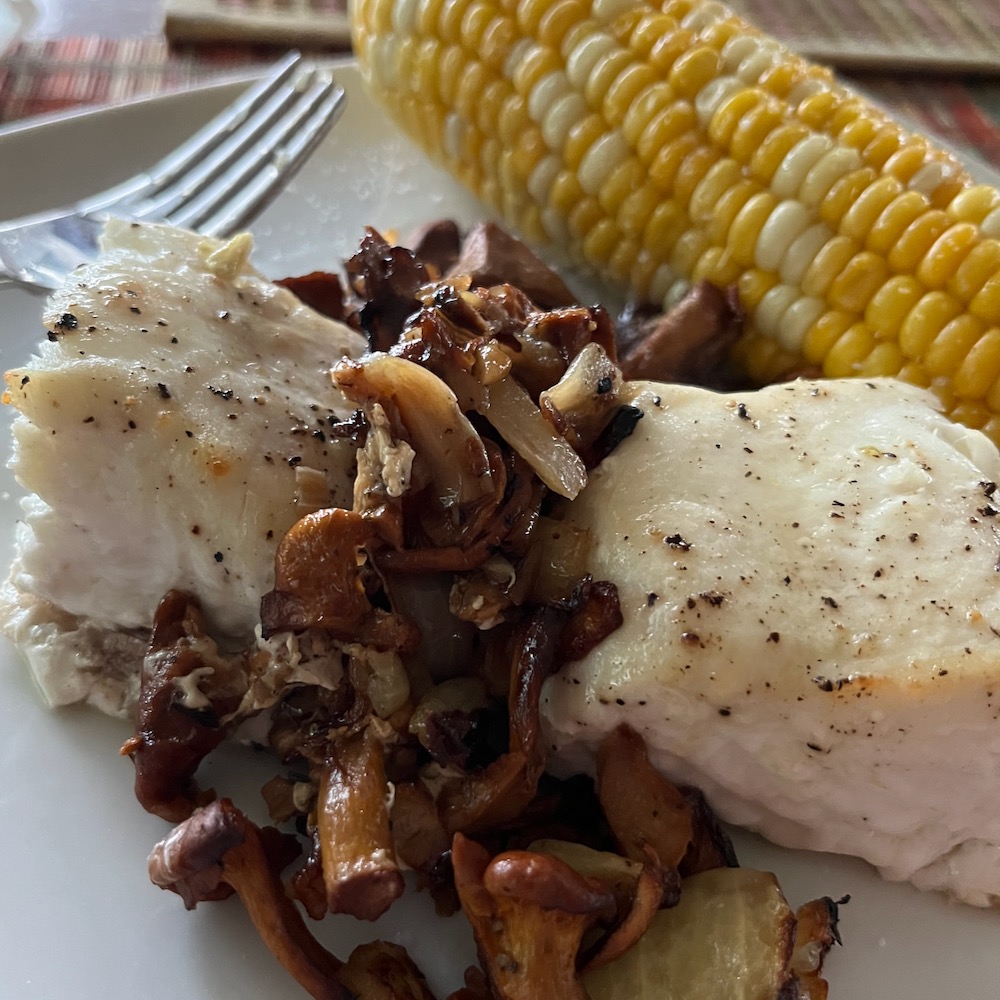
Roasted halibut, sablefish or ling cod, with chanterelles
This simple dish makes the most of amazing ingredients.
Serves 4.
- 2 Tbsp. olive oil
- 6 cloves garlic, minced
- 1 medium onion, diced
- 2 c. sliced chanterelles, fresh or frozen
- 1 tsp. minced fresh thyme (or ½ tsp. if dried)
- 1 lb. densely textured white fish (halibut, sablefish or ling cod), thawed if frozen, sliced into 4 equal pieces
- salt and pepper to taste
- a drizzle of white wine, optional
- 4 large wedges lemon
Heat oven to 400 C. Preheat a cast iron sauté pan on a high flame. Add oil, then garlic. Cook briefly, until golden. Stir in onions, reduce heat, and cover. Sweat onions until tender, 10-15 minutes, stirring several times.
Raise heat to high, add chanterelles and sauté until nicely coloured. Season with thyme, then move vegetables to outer edges of pan. Centre fish in pan, season to taste, add wine or a splash of water, and sauté without stirring for 2 minutes. Transfer pan to oven, uncovered. Roast for 10-12 minutes, until fish is flaky. Remove from oven and serve with chanterelles and a wedge of lemon.

